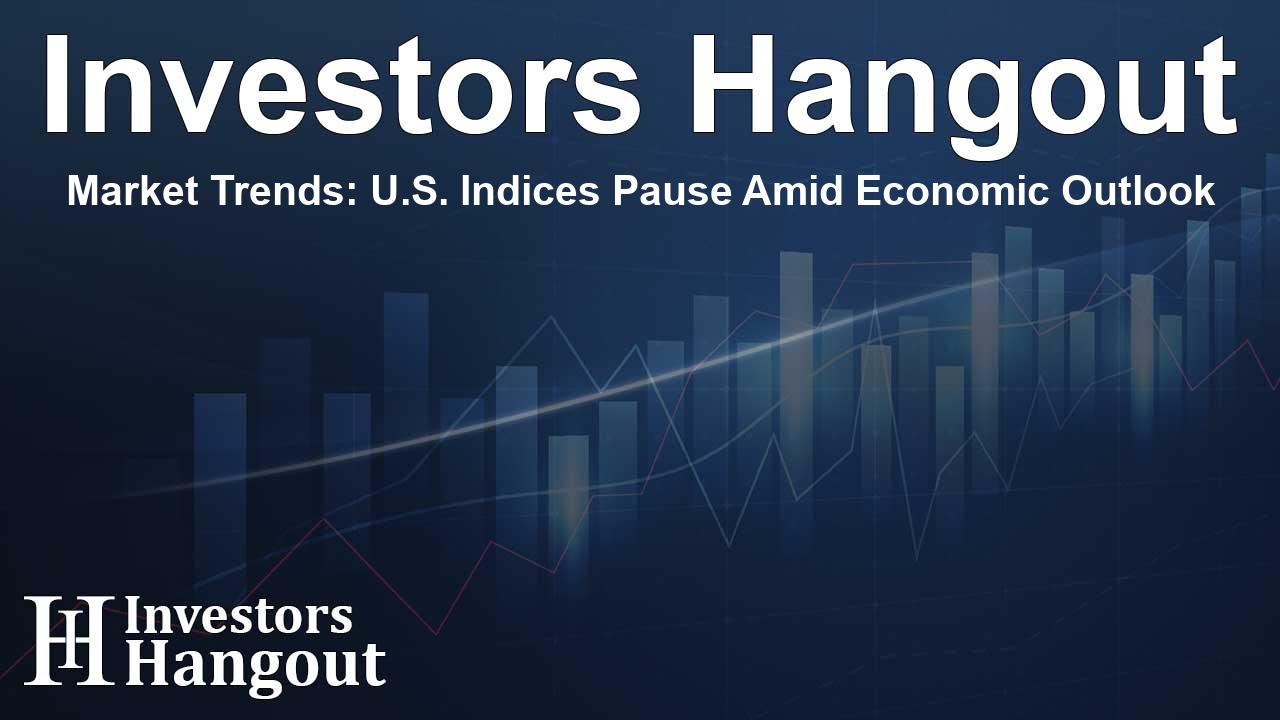Market Trends: U.S. Indices Pause Amid Economic Outlook

U.S. Stock Indexes Experience a Temporary Pause
The U.S. stock index futures experienced a slight dip as they took a moment to consolidate after a significant rally. This pause followed a week where Wall Street's main indexes showed promising upward trends, boosted by pivotal monetary policy decisions from the Federal Reserve earlier in the week.
Record Highs and Market Performance
The S&P 500 recently achieved its eighth gain in the last nine sessions and reached a record high, surpassing a previously established milestone from mid-summer. Meanwhile, the blue-chip Dow managed to close above the crucial psychological benchmark of 42,000 points, demonstrating its own record-setting activity.
In parallel, the tech-focused Nasdaq index is also on track for weekly gains exceeding 1%. Notably, the S&P 500's performance reflects a surprising upward trajectory this month, diverging from historical trends which often show dips during September.
Current Market Movements
As trading commenced early in the day, Dow E-minis fell by 12 points (equating to a drop of 0.03%), while S&P 500 E-minis declined by 14 points, or 0.24%. The Nasdaq 100 E-minis also experienced a decrease, dropping by 75 points (0.37%).
Impact of Federal Reserve Decisions
Investor sentiment turned positive following the Federal Reserve's notable action of implementing a 50-basis-point interest rate cut, signaling the beginning of an easing cycle. This decision was anticipated and coupled with assurances of additional cuts in the near future, which helped bolster investor confidence.
Economic Strategies Going Forward
The Federal Reserve's recent forecasts suggested a phase of stable economic growth accompanied by low unemployment rates and manageably low inflation. As economic indicators continue to be sparse, market participants are keenly awaiting insights from Philadelphia Fed President Patrick Harker. His forthcoming comments are highly anticipated for their potential to shape future interest rate policies.
Future Outlook and Potential Volatility
The market is preparing for possible volatility stemming from the occurrence of "triple witching" later this month. This complex event involves the simultaneous expiration of options and futures linked to stock indexes, futures, and single stocks, which typically heightens market activity.
Major Corporate Developments
Key movers in the stock market present a mixed bag of performances. FedEx's stock plummeted by 13% after the company, often regarded as an economic bellwether, disclosed a significant drop in quarterly profits and subsequently lowered its revenue forecasts for the year. In contrast, Nike's share prices surged by 6.9% following the announcement that former senior executive Elliott Hill would rejoin as president and CEO.
Insights from Global Economies
As investors reflect on the broader landscape, global economic trends create a backdrop of uncertainty. With recent cautious stances taken by central banks in both the UK and Japan, the market's outlook remains ambiguous, leaving many to wonder whether the economy is poised for a significant upswing or if it may soon be facing a downturn.
Despite historically favorable conditions during rate-cutting cycles—where lower borrowing costs typically relieve pressures on corporate profits—the current outlook for the S&P 500 is complex, with its valuations currently sitting at levels significantly above historical averages.
Frequently Asked Questions
What recent actions by the Federal Reserve are impacting the stock market?
The Federal Reserve recently implemented a 50-basis-point rate cut and indicated that more cuts are likely forthcoming, positively influencing market sentiment.
How did the major stock indexes perform recently?
The S&P 500 reached an all-time high, while the Dow closed above 42,000, marking significant gains for both indexes in recent sessions.
What is "triple witching" and how does it affect the markets?
Triple witching refers to the simultaneous expiration of stock index options, stock options, and futures, which often leads to increased market volatility.
What were the key corporate movers reported?
FedEx stock fell 13% due to a profit drop and lowered forecasts, whereas Nike shares rose 6.9% following executive announcements impacting leadership.
How do historical trends affect September's market performance?
Historically, September has been weaker for U.S. equities, but recent performance suggests a deviation from this norm as the S&P 500 shows gains this month.
About Investors Hangout
Investors Hangout is a leading online stock forum for financial discussion and learning, offering a wide range of free tools and resources. It draws in traders of all levels, who exchange market knowledge, investigate trading tactics, and keep an eye on industry developments in real time. Featuring financial articles, stock message boards, quotes, charts, company profiles, and live news updates. Through cooperative learning and a wealth of informational resources, it helps users from novices creating their first portfolios to experts honing their techniques. Join Investors Hangout today: https://investorshangout.com/
Disclaimer: The content of this article is solely for general informational purposes only; it does not represent legal, financial, or investment advice. Investors Hangout does not offer financial advice; the author is not a licensed financial advisor. Consult a qualified advisor before making any financial or investment decisions based on this article. The author's interpretation of publicly available data shapes the opinions presented here; as a result, they should not be taken as advice to purchase, sell, or hold any securities mentioned or any other investments. The author does not guarantee the accuracy, completeness, or timeliness of any material, providing it "as is." Information and market conditions may change; past performance is not indicative of future outcomes. If any of the material offered here is inaccurate, please contact us for corrections.